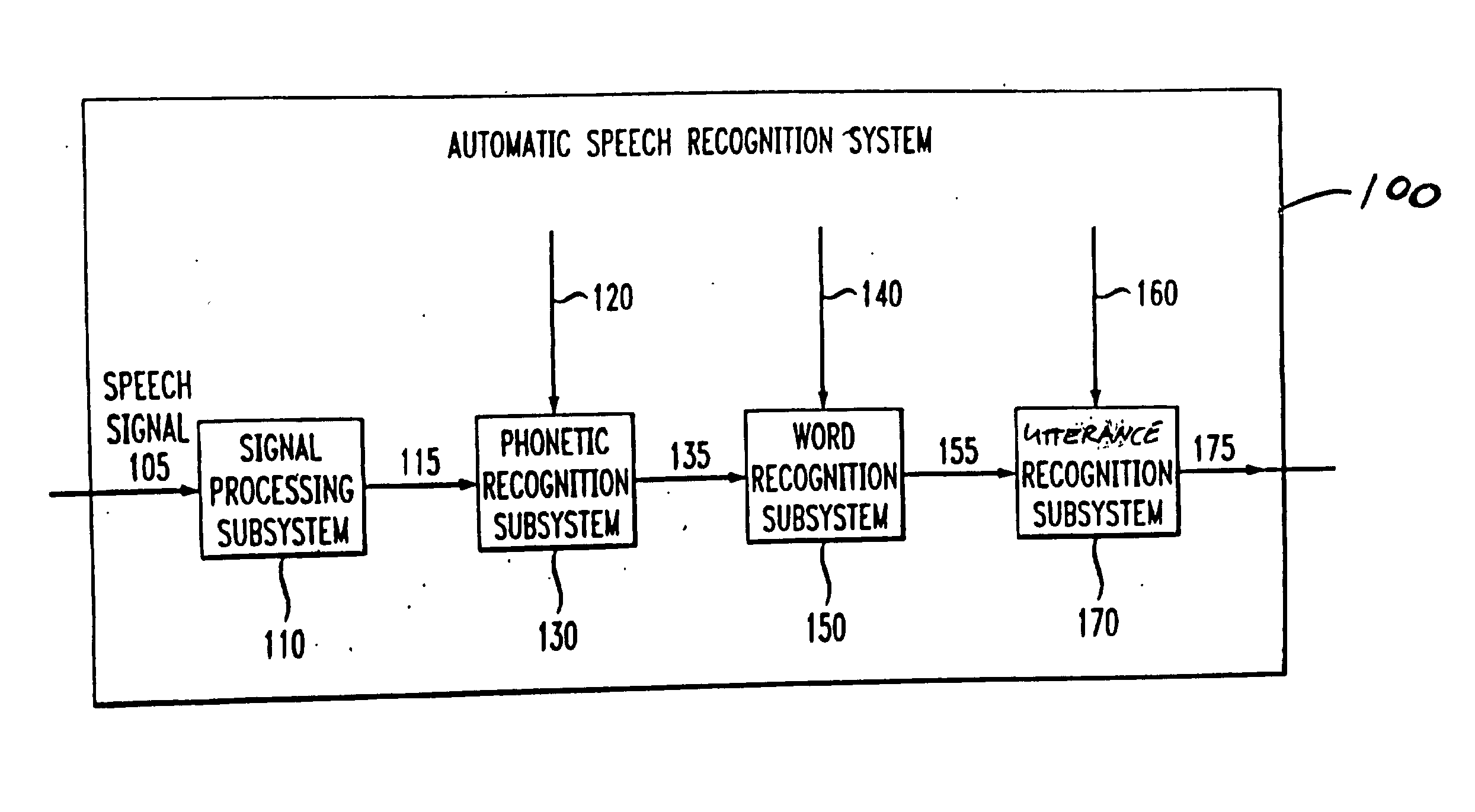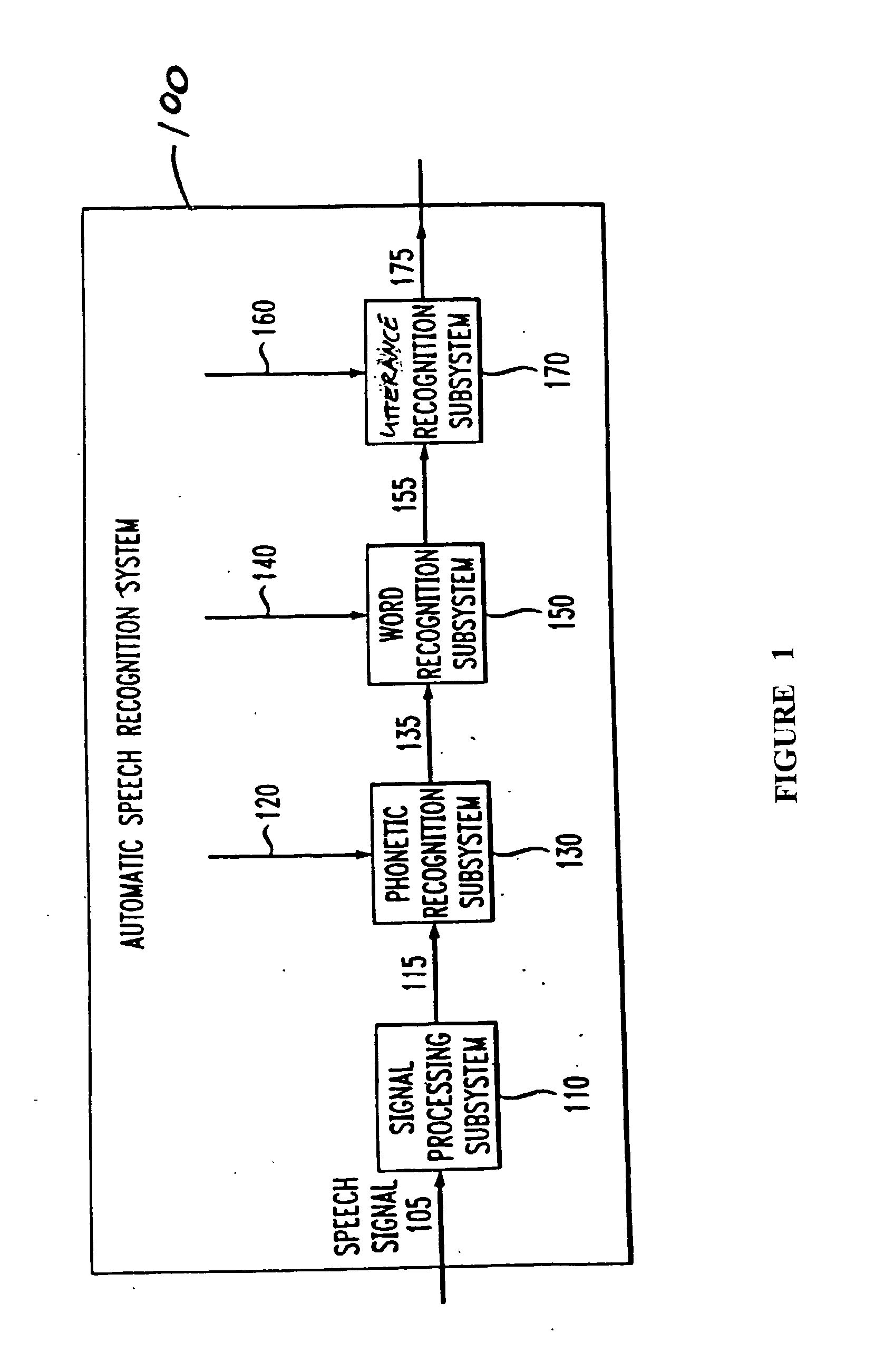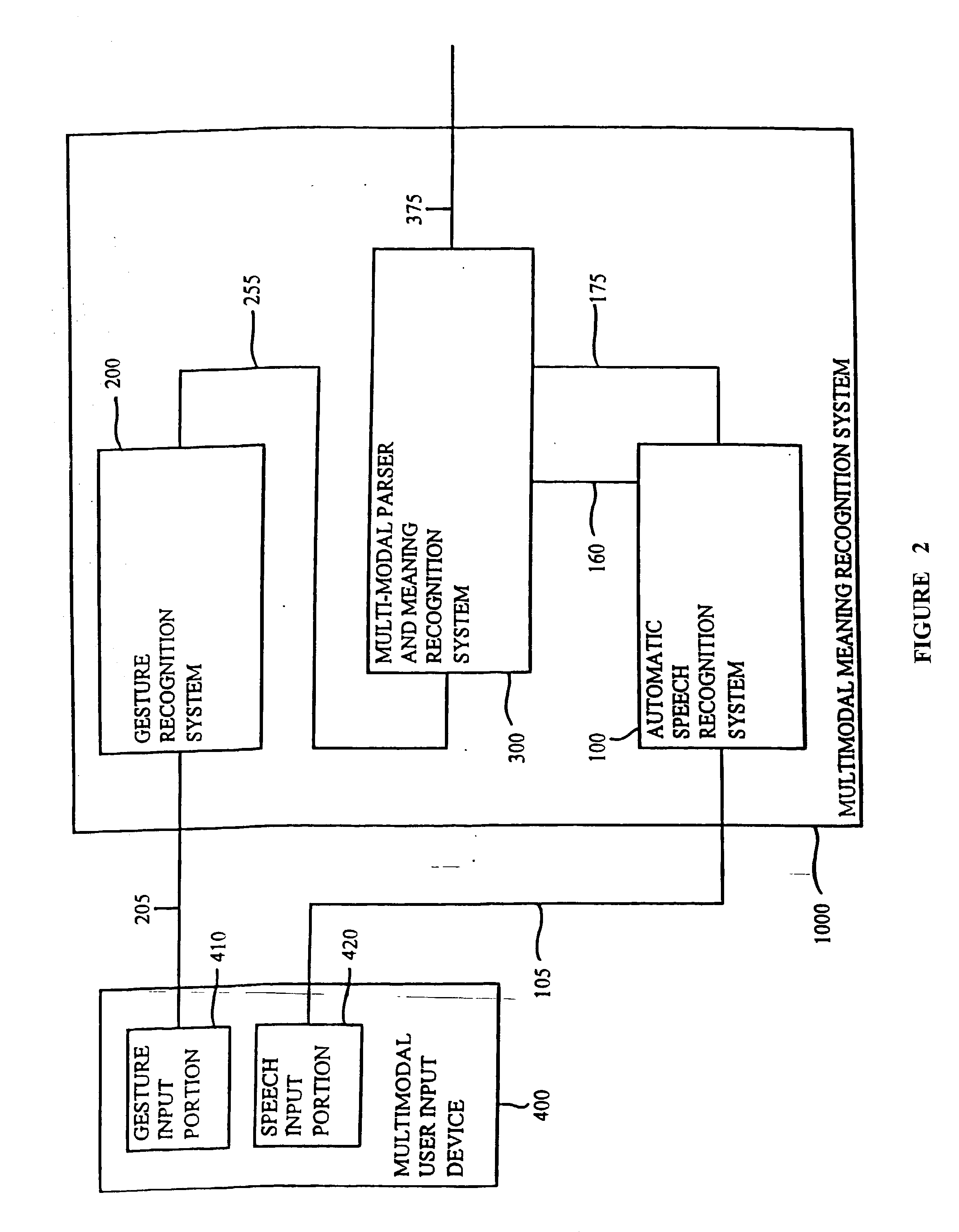Systems and methods for aggregating related inputs using finite-state devices and extracting meaning from multimodal inputs using aggregation
a technology of related inputs and finite-state devices, applied in the field of aggregating related inputs, can solve the problems of limited screen real estate, limited keyboard interface, complex unimodal gestures,
- Summary
- Abstract
- Description
- Claims
- Application Information
AI Technical Summary
Problems solved by technology
Method used
Image
Examples
Embodiment Construction
[0076] FIG. 1 illustrates one exemplary embodiment of an automatic speech recognition system 100 usable with the multimodal recognition and / or meaning system 1000 according to this invention that is shown in FIG. 2. As shown in FIG. 1, automatic speech recognition can be viewed as a processing pipeline or cascade.
[0077] In each step of the processing cascade, one or two lattices are input and composed to produce an output lattice. In automatic speech recognition and in the following description of the exemplary embodiments of the systems and methods of this invention, the term "lattice" denotes a directed and labeled graph, which is possibly weighted. In each lattice, there is typically a designated start node "s" and a designated final node "t". Each possible pathway through the lattice from the start node s to the final node t induces a hypothesis based on the arc labels between each pair of nodes in the path. For example, in a word lattice, the arc labels are words and the variou...
PUM
 Login to View More
Login to View More Abstract
Description
Claims
Application Information
 Login to View More
Login to View More - R&D
- Intellectual Property
- Life Sciences
- Materials
- Tech Scout
- Unparalleled Data Quality
- Higher Quality Content
- 60% Fewer Hallucinations
Browse by: Latest US Patents, China's latest patents, Technical Efficacy Thesaurus, Application Domain, Technology Topic, Popular Technical Reports.
© 2025 PatSnap. All rights reserved.Legal|Privacy policy|Modern Slavery Act Transparency Statement|Sitemap|About US| Contact US: help@patsnap.com



